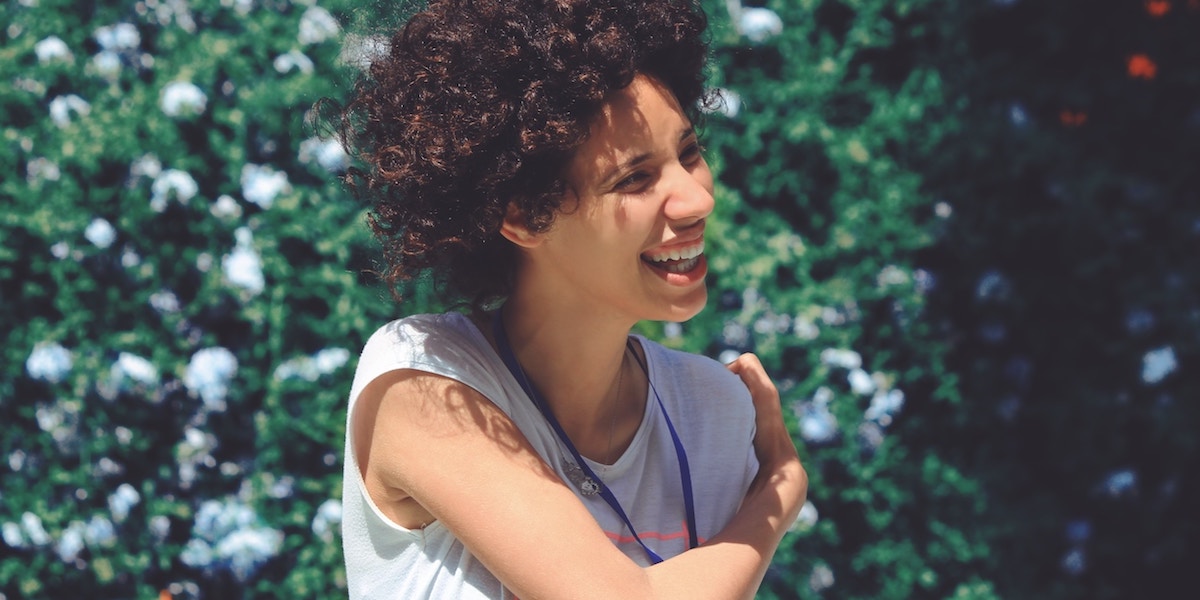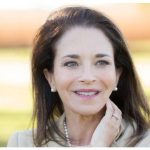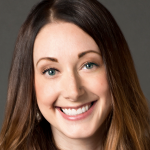READ ON TO DISCOVER:
- The one thing that highly effective leaders have in common
- How small, daily habits can lead to a more mindful life
- Why we should serve ourselves before we serve others
Dr. Julie Rosenberg is a physician, keynote speaker, leadership coach, avid yogi, and author of Beyond the Mat. Her passion is helping people embrace healthy lifestyles and enhance personal leadership skills in order to thrive. She joined Tasha Eurich, an organizational psychologist and the New York Times bestselling author of Insight for a conversation about how to stay centered in a busy world.
This conversation has been edited and condensed.
Tasha: You and I first met as members of a group—selected by Marshall Goldsmith—of 100 leaders in their fields, who come together and share their skills and knowledge. I was so struck by what a unique set of experiences and expertise you have—you’re a physician and a trained yoga instructor, and your life’s work is about the intersection of those two things. I’m curious, what inspired you to take this unique path?
Julie: I worked as a pediatric oncologist in a large cancer center for many years, and then evolved my career to drug development. Finding the balance [between] being in the trenches, but also being an observer [was important for me,] because a lot of the time when we’re so immersed in the work, we don’t see what’s actually before us.
I found that I was using many of the principles and practices of yoga to manage corporate life because it’s so demanding. It has so many uncertainties and so many things that can be difficult and complex to manage. The story of yoga really caused me to pause to reflect. The practice creates space to think, and in that thinking space we become more creative, more aware. Being aware of my environment and aware of others is just so critical that I really wanted to share it. What you need to do to succeed may be as simple as pausing and reflecting, and making a better decision in the moment.
“The practice creates space to think, and in that thinking space we become more creative, more aware.”
Tasha: You talk in your book Beyond the Mat about this idea of enlightened leadership. In a practical sense, what does it mean for the leaders to be enlightened?
Julie: First and foremost, [it means that] we can all be highly effective leaders. Those who are enlightened leaders have a sense of servitude. They’re committed to making the world a better place, to their ongoing growth, to transformation and purposeful leading and living. In these commitments, we can make a high-level contribution to our work, to our families, and to society as a whole. When we adopt that viewpoint, it allows us to reach this place of greater enlightenment, because we know what’s critically important, and what will serve us and others in the short-term and the long-term.
Trending: Best Happiness Books of 2025 (So Far)
“Those who are enlightened leaders have a sense of servitude. They’re committed to making the world a better place, to their ongoing growth, to transformation and a purposeful leading and living.”
Tasha: If somebody wants to take one step forward to become more enlightened and achieve some of those benefits you just talked about, what are one or two practices that they could start doing right away?
Julie: Well, the work that you do, Tasha, in terms of exercising a level of insight and self-awareness, is critical in taking [that first step]. We need to be open to ourselves. We need to be aware of what’s going on in our bodies, in our hearts, and then we can live in a way that that allows us to be aware of ourselves, our environment, and [to serve] others in a better way.
Another thing to do is to define the purpose of our work. We have a more purposeful and fulfilled life following this clear introspection, and becoming more aware of what’s really driving us.
The last thing I’ll [emphasize] is self-care. You’ve got to put your oxygen mask on first—you cannot serve others until you serve yourself. You need to be grounded and be in a place that supports your own health and well-being to be able to serve others and do your work well. I think this is an area where people really fall down so much. They hear that, they listen to it, but it’s in one ear and out the other.
“You’ve got to put your oxygen mask on first—you cannot serve others until you serve yourself.”
Tasha: In my book Insight I talk about my love-hate relationship with [self-care] practices like meditation. I know I need to do it, I know it’s good for me, but I don’t particularly enjoy it. What would you say to the Type A person who is reading this? How can they [incorporate] some of those self-care practices into their life in a tangible, practical way?
Julie: I also find that difficult at times and, quite frankly, I don’t always have the time. However, most of us can find three to five minutes in the morning or evening to sit quietly and meditate. Whenever you can find a few moments, pause, sit quietly, minimize your distractions, and focus on your breath or a single point, like a candle flickering. That’s been the key to my success. I call it “meditation on the move.”

Trending: Why Rest is the Biggest Productivity Hack for Your Brain
Tasha: It’s such a simple insight, but I had never really thought about that until I read your book. I don’t have to sit cross-legged in a dark room for thirty minutes. I was reading your book on a plane this week and realized, “Wow. I could put this book down and do one of these great two-minute exercises right now.” And so, I did. That was just such a big aha moment for me—everybody has time when we’re waiting. When you’re at the doctor’s office, or on the train, or in the car, or on a bus—all of those opportunities provide such a great space to practice, even if it’s for two minutes.
Julie: When you tried it on the plane for two minutes, did anything shift for you?
Tasha: Whenever I meditate, even for just a minute or two, I feel calmer in that moment, more clear-headed. The key for me is to do it in the times when I feel like I have the least amount of time. Meditation helps me the most when I’m stressed.
Another thing I’ve learned from you [comes from] the practice of yoga: satya, which is Sanskrit for “truth.” We all want truth about the universe, but to get there we’ve got to start with the truth about ourselves. What do you think the relationship should be between self-improvement and being content with who we are? How do you find that balance in your own life, and what would you recommend for leaders who are on that journey?
“We all want truth about the universe, but to get there we’ve got to start with the truth about ourselves.”
Julie: Contentment is often hard to find when we’re always striving for more, better, or different. We have to be able to define what is truly important to us. I just lost an executive position in a major company due to a corporate restructuring, and basically there was nothing I could do about it. So at that time, I had an opportunity to reflect and determine what was important for me for that next step in my life, in my career. When it first happened, I had a lot of anger, but then I tried to breathe through it. I tried to sit quietly and find a space of contentment.

What I realized is that maybe the opportunity for me to deal with that challenge is what I needed. I have to redefine what is important for me. What could I do if I could find a place of contentment, instead of rage, upset, and anger? How can I use this to become more creative? How can I make this work for me? I really encourage everyone to find what’s important, sit with it, find a place to reflect, and just be, and really try to move from there. Because passion and purpose really do lead to a life of abundance.
“Passion and purpose really do lead to a life of abundance.”
Tasha: That’s so true, and that personal example you just shared reminds me of our colleague Whitney Johnson’s work—she talks about disrupting ourselves. Sometimes we are disrupted without wanting to be disrupted, or without requesting that we be. One thing she says that I think is really powerful is that our constraints are our motivators, and if we don’t have constraints, that’s when we are less creative, less resourceful, less successful. I think that’s a good message for all of us.
If you wanted to impart one daily practice to the folks who are reading this that will help them become a more enlightened leader, what would that practice be?
Trending: How to Break Free From the Ambition Trap
Julie: Breathe. The breath is something that we’re often not aware of. In times of stress of anxiety, we often hold our breath, but the breath opens space. I know folks are busy, so I’m talking about one minute—focusing on the breath can help you feel less anxious, feel more grounded, make better decisions, and find that space of contentment.
Tasha: Those are doctor’s orders, right? So we’ve got to follow them.
Julie: Well, it would be nice if everybody followed doctor’s orders, but even better if they made their own orders to live and lead a better life.
Ready for more big ideas like this? Join the Next Big Idea Club today!





























